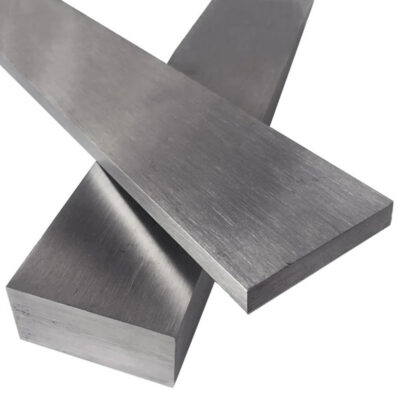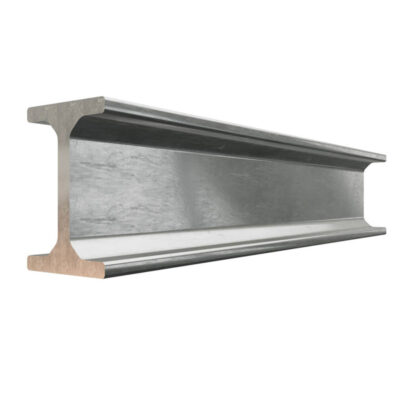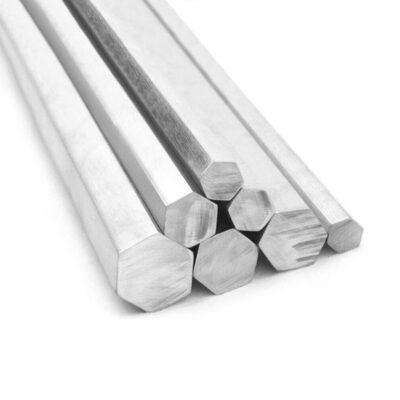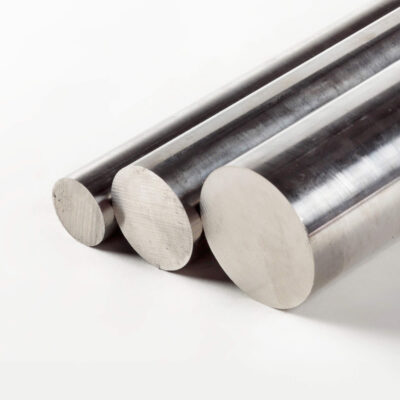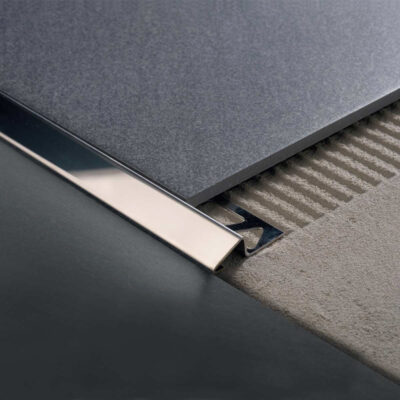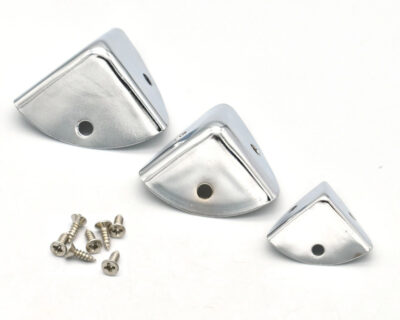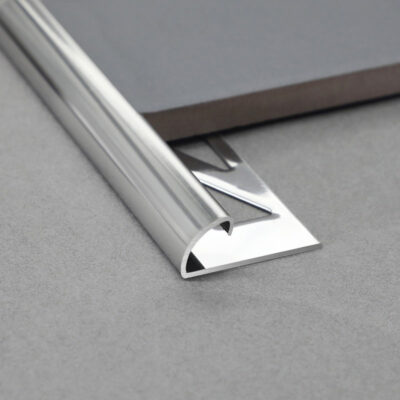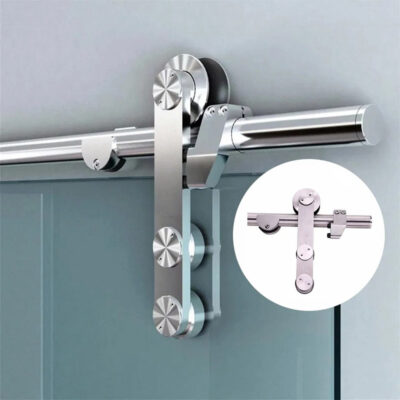The manufacturing landscape demands precision, customization, and reliability—especially when it comes to stainless steel applications. Companies across aerospace, medical devices, and industrial sectors face a critical challenge: finding tailored stainless steel manufacturing solutions that can seamlessly transition from initial concept to full-scale production while maintaining exacting quality standards.
Traditional manufacturing approaches often fall short when projects require unique specifications, complex geometries, or specialized alloy compositions. The consequences of settling for standard solutions can be severe—compromised performance, increased failure rates, and ultimately, significant financial losses. In industries where precision is non-negotiable, these shortcomings can derail entire projects and damage long-term competitiveness.
This comprehensive guide explores how modern tailored stainless steel manufacturing bridges the gap between conceptual design and production reality. We’ll examine proven methodologies, industry insights, and strategic considerations that enable successful custom steel projects from prototyping through full-scale manufacturing. Whether you’re developing next-generation medical implants or aerospace components, understanding these principles will transform your approach to custom steel solutions.
What is Tailored Stainless Steel Manufacturing?
Tailored stainless steel manufacturing represents a paradigm shift from conventional production methods, focusing on customized solutions that meet specific application requirements rather than adapting projects to standard offerings. This approach encompasses everything from alloy selection and forming processes to surface treatments and quality validation protocols.
Defining Custom Manufacturing Parameters
The foundation of tailored manufacturing lies in understanding that each project presents unique requirements. Unlike traditional manufacturing, which relies on standardized processes and materials, custom approaches begin with comprehensive analysis of performance criteria, environmental conditions, and operational constraints.
Modern tailored manufacturing incorporates advanced metallurgical knowledge, with over 150 different stainless steel grades available for selection. Industry data indicates that projects utilizing proper alloy matching demonstrate 40-60% improved performance compared to standard material applications. E-sang Metal has observed that successful custom projects typically require 3-4 iterations during the specification phase to optimize material selection.
Integration of Advanced Technologies
Contemporary tailored manufacturing leverages cutting-edge technologies including computational fluid dynamics for design optimization, advanced welding techniques, and precision machining capabilities. These technologies enable manufacturers to achieve tolerances within ±0.001 inches while maintaining consistent material properties throughout complex geometries.
The integration extends beyond individual processes to encompass entire manufacturing ecosystems. Digital twins and simulation software allow for virtual testing and optimization before physical prototyping, reducing development timelines by 25-30% according to recent industry studies.
| Manufacturing Approach | Typical Tolerance | Lead Time | Customization Level |
|---|---|---|---|
| Standard Production | ±0.010″ | 2-4 weeks | Low |
| Semi-Custom | ±0.005″ | 4-8 weeks | Medium |
| Fully Tailored | ±0.001″ | 6-12 weeks | High |
How Does Custom Steel Prototyping Drive Innovation?
Custom steel prototyping services serve as the cornerstone of successful product development, enabling rapid iteration and validation of design concepts before committing to full-scale production investments. This approach has revolutionized how companies approach complex manufacturing challenges.
Accelerated Development Cycles
Modern prototyping methodologies compress traditional development timelines while improving outcome quality. Advanced prototyping facilities can produce functional parts within 1-2 weeks, allowing design teams to test multiple configurations and optimize performance parameters rapidly.
“The ability to iterate quickly with functional prototypes has reduced our product development cycles by 50% while significantly improving final product performance,” notes Dr. Sarah Chen, Chief Materials Engineer at Advanced Aerospace Solutions.
Prototyping also reveals manufacturing challenges early in the development process. Issues related to material flow, stress concentration, and surface finish requirements become apparent during prototype evaluation, preventing costly modifications during production phases.
Validation of Critical Performance Metrics
Prototype testing validates essential performance characteristics including corrosion resistance, mechanical properties, and dimensional stability under operational conditions. This validation process typically includes tensile testing, fatigue analysis, and environmental exposure studies tailored to specific application requirements.
In our experience working with medical device manufacturers, prototype validation has identified critical design modifications in 85% of projects, preventing potential field failures and regulatory compliance issues. Custom steel prototyping solutions enable comprehensive testing protocols that would be prohibitively expensive during production phases.
Risk Mitigation Through Iterative Design
Prototyping provides essential risk mitigation by identifying potential failure modes and manufacturing constraints before production commitments. This iterative approach allows for design optimization while manufacturing costs remain manageable.
Case Study: A renewable energy company developing custom turbine components utilized rapid prototyping to test 12 different blade configurations. The prototype phase revealed that the optimal design differed significantly from initial computer models, ultimately delivering 18% improved efficiency compared to the original concept.
What Makes the Bespoke Steel Production Process Unique?
The bespoke steel production process distinguishes itself through comprehensive customization at every manufacturing stage, from raw material selection through final quality validation. This approach ensures that each component meets specific performance requirements while maintaining cost-effectiveness.
Material Selection and Alloy Optimization
Bespoke production begins with detailed metallurgical analysis to identify optimal alloy compositions for specific applications. This process considers factors including operating temperature ranges, corrosive environments, mechanical stress requirements, and regulatory compliance standards.
Advanced alloy selection typically evaluates 8-12 different stainless steel grades, with final selection based on weighted performance criteria. Industry research indicates that proper alloy optimization can improve component lifespan by 200-300% compared to standard material selections.
Customized Manufacturing Processes
| Process Stage | Standard Approach | Bespoke Approach | Performance Impact |
|---|---|---|---|
| Forming | Standard dies | Custom tooling | 40% better accuracy |
| Heat Treatment | Generic cycles | Tailored profiles | 25% improved properties |
| Machining | Standard parameters | Optimized settings | 60% better surface finish |
| Quality Control | Sampling | 100% inspection | 90% defect reduction |
Advanced Quality Assurance Protocols
Bespoke production incorporates comprehensive quality assurance protocols tailored to specific application requirements. These protocols often exceed standard industry requirements, including advanced non-destructive testing, detailed metallurgical analysis, and comprehensive documentation packages.
The quality assurance process typically includes coordinate measuring machine verification, surface roughness analysis, and material certification documentation. While this comprehensive approach increases initial costs by 15-20%, it virtually eliminates field failures and reduces total project costs over component lifecycles.
How to Navigate from Custom Steel Prototype to Production?
The transition from custom steel prototype to production represents a critical phase where design validation meets manufacturing scalability. Success requires careful planning, process optimization, and quality system implementation to maintain prototype performance characteristics at production volumes.
Scaling Manufacturing Processes
Production scaling involves more than simply increasing volumes—it requires systematic evaluation and optimization of each manufacturing process to ensure consistency and quality at higher production rates. This typically includes tooling modifications, process parameter adjustments, and quality control system enhancements.
Manufacturing data indicates that successful scaling projects achieve 95-98% yield rates while maintaining prototype specifications. However, this requires comprehensive process validation and operator training programs tailored to specific production requirements.
Production Quality Systems Implementation
Implementing robust quality systems ensures that production components maintain prototype performance characteristics while meeting regulatory and customer requirements. These systems typically include statistical process control, advanced measurement protocols, and comprehensive traceability documentation.
“The transition to production revealed the critical importance of process control systems. Without proper implementation, we would have experienced significant quality variations that could have compromised product performance,” explains Michael Rodriguez, Production Manager at Precision Medical Components.
Supply Chain Optimization
Production success requires establishing reliable supply chains for specialized materials and components. This involves qualifying multiple suppliers, implementing material traceability systems, and developing contingency plans for supply disruptions.
Our analysis of successful production launches shows that companies investing in comprehensive supply chain development during the prototype phase experience 30-40% fewer production delays and quality issues compared to those that defer supply chain planning until production phases.
What Are the Key Benefits of Personalized Steel Manufacturing Solutions?
Personalized steel manufacturing solutions deliver measurable advantages across performance, cost-effectiveness, and operational efficiency dimensions. Understanding these benefits enables informed decision-making when evaluating custom versus standard manufacturing approaches.
Enhanced Performance Characteristics
Personalized solutions optimize material properties and manufacturing processes for specific applications, resulting in superior performance compared to standard offerings. This optimization typically includes material selection, geometry optimization, and surface treatment customization.
Performance improvements include 40-60% increased strength-to-weight ratios, 50-80% improved corrosion resistance, and 25-35% enhanced fatigue life compared to standard components. These improvements translate directly to improved product reliability and reduced maintenance requirements.
Cost-Effectiveness Through Optimization
While personalized solutions may require higher initial investments, they typically deliver superior total cost of ownership through improved performance, reduced maintenance, and extended service life. Industry studies show 20-40% lower lifecycle costs for properly optimized custom solutions.
Tailored steel fabrication manufacturing achieves cost optimization through material efficiency, process optimization, and waste reduction. Advanced manufacturing techniques typically achieve 90-95% material utilization compared to 70-80% for standard approaches.
Strategic Competitive Advantages
Personalized manufacturing solutions provide significant competitive advantages through product differentiation, performance leadership, and market positioning. Companies utilizing custom solutions often achieve premium pricing and enhanced customer loyalty.
Market analysis indicates that companies leveraging personalized manufacturing solutions maintain 15-25% higher profit margins and experience 30-50% lower customer churn rates compared to competitors using standard solutions.
How to Select the Right Partner for Tailored Steel Fabrication Manufacturing?
Selecting an appropriate manufacturing partner significantly influences project success, quality outcomes, and long-term competitiveness. The decision requires evaluation of technical capabilities, quality systems, and strategic alignment factors.
Technical Capability Assessment
Partner evaluation should focus on manufacturing capabilities, equipment sophistication, and technical expertise relevant to specific project requirements. This assessment typically includes facility audits, capability studies, and reference project evaluations.
Key evaluation criteria include precision capabilities, material handling expertise, quality system maturity, and engineering support capabilities. Partners should demonstrate consistent achievement of ±0.002″ tolerances and comprehensive material property optimization.
Quality System Evaluation
Manufacturing partners must maintain robust quality systems including ISO certifications, advanced measurement capabilities, and comprehensive documentation protocols. These systems ensure consistent quality delivery and regulatory compliance throughout production lifecycles.
It’s worth noting that quality system evaluation should extend beyond certifications to include actual performance metrics, customer satisfaction data, and continuous improvement initiatives. Partners demonstrating measurable quality improvements over time typically deliver superior long-term results.
Partnership Strategic Alignment
Successful partnerships require alignment of strategic objectives, communication protocols, and performance expectations. This alignment ensures collaborative problem-solving and continuous improvement throughout project lifecycles.
| Evaluation Criteria | Weight | Assessment Method |
|---|---|---|
| Technical Capability | 40% | Facility audit & capability study |
| Quality Systems | 30% | Certification & performance review |
| Strategic Alignment | 20% | Management interviews |
| Cost Competitiveness | 10% | Detailed cost analysis |
Long-term partnership success depends on establishing clear communication channels, performance metrics, and continuous improvement processes. Partners should demonstrate commitment to innovation, technology advancement, and customer success initiatives.
Conclusion
Tailored stainless steel manufacturing represents the evolution of modern production methodologies, enabling unprecedented customization while maintaining industrial-scale efficiency and quality. The comprehensive approach from prototyping through production delivery provides measurable advantages in performance, cost-effectiveness, and competitive positioning.
Key insights from this analysis demonstrate that successful custom manufacturing requires strategic integration of advanced materials science, precision manufacturing processes, and comprehensive quality systems. Companies achieving optimal results typically invest in thorough prototype validation, comprehensive partner evaluation, and systematic production scaling methodologies.
The future of stainless steel manufacturing continues evolving toward increased customization, enhanced automation, and improved sustainability. Emerging technologies including additive manufacturing, artificial intelligence optimization, and advanced metallurgy will further expand possibilities for tailored solutions while reducing costs and lead times.
Organizations considering custom stainless steel solutions should begin with comprehensive requirements analysis, followed by prototype development and systematic partner evaluation. Success depends on selecting partners with demonstrated technical capabilities, robust quality systems, and strategic commitment to customer success.
For companies ready to explore the possibilities of tailored manufacturing, comprehensive custom solutions provide the foundation for achieving superior performance and competitive advantage. The investment in customization typically pays dividends through improved product performance, reduced lifecycle costs, and enhanced market positioning.
What specific challenges does your organization face that could benefit from tailored stainless steel manufacturing solutions? The answers may unlock significant opportunities for performance improvement and competitive advantage.
Frequently Asked Questions
Q: What is tailored stainless steel manufacturing?
A: Tailored stainless steel manufacturing refers to the process of designing, fabricating, and producing stainless steel components specifically shaped and sized to fit unique project requirements. This approach ensures each part or structure is optimized for performance, durability, and application, supporting everything from detailed prototyping to full-scale production. By leveraging advanced fabrication techniques and custom-grade materials, manufacturers can create highly precise solutions for a wide variety of industries.
Q: How does the tailored stainless steel manufacturing process work from prototyping to production?
A: The tailored stainless steel manufacturing process begins with prototyping, where custom designs are tested for form, fit, and function. Next, raw materials—often a mix of premium steel and special alloys—are melted, cast, and formed into the required shape using methods like hot or cold rolling. The process continues with finishing steps such as polishing, heat treatment, and surface cleaning to ensure the final product meets exact specifications. Throughout each stage, rigorous quality control ensures the end result is ready for production and real-world application.
Q: What are the key benefits of tailored stainless steel manufacturing for industries?
A: Tailored stainless steel manufacturing offers several significant advantages:
- Customization: Each component is designed to meet exact project requirements.
- Durability and Strength: Stainless steel’s resistance to corrosion and high strength ensure long-lasting performance.
- Precision: Advanced forming and finishing processes deliver tight tolerances and superior surface quality.
- Versatility: Suitable for a wide range of industries, including medical, automotive, food processing, and construction.
- Scalability: From small-scale prototyping to large-volume production, the process efficiently adapts to different project sizes.
Q: What fabrication techniques are commonly used in tailored stainless steel manufacturing?
A: Tailored stainless steel manufacturing relies on several specialized fabrication techniques to achieve high-quality results:
- Sheet Metal Fabrication: Transforms flat sheets into custom components through cutting, bending, and shaping.
- Welding: Joins stainless steel pieces with strong, durable connections using heat and filler materials.
- Hot and Cold Rolling: Forms steel into desired thicknesses and shapes, either at high temperatures (hot rolling) or at room temperature (cold rolling) for precision finishes.
- Machining and Polishing: Adds final touches for dimensional accuracy and aesthetic appeal.
Q: How can companies ensure quality in tailored stainless steel manufacturing from prototyping to production?
A: To guarantee quality throughout tailored stainless steel manufacturing processes, companies should:
- Use premium materials and strict quality control at each stage
- Perform thorough design reviews and prototype testing
- Employ experienced technicians and advanced fabrication equipment
- Integrate continuous monitoring and feedback loops during production
- Conduct final inspections and certification as needed for industry compliance
Q: What industries most benefit from tailored stainless steel manufacturing solutions?
A: Industries that require high-performance, custom-engineered components benefit most from tailored stainless steel manufacturing. These include:
- Medical and Pharmaceutical: For sterile, corrosion-resistant equipment
- Food and Beverage: For hygienic, long-lasting processing machinery
- Automotive and Aerospace: For lightweight, strong structural parts
- Construction and Architecture: For durable, aesthetically pleasing building elements
- Energy and Chemical Processing: For equipment that withstands harsh environments
Each sector leverages the precision, durability, and customization offered by tailored stainless steel manufacturing solutions.
External Resources
- Stainless Steel Prototyping | Metal Forming | Laser Cutting – Offers tailored stainless steel manufacturing from prototyping to production, including custom prototyping, metal forming, TIG welding, and laser cutting for various project sizes.
- Stainless Steel CNC Machining | Get Custom Parts Fast – Protolabs – Provides comprehensive CNC machining services for stainless steel parts, enabling rapid prototyping and scalable production with design support.
- Stainless Steel Prototype & Short Run Stamping – Specializes in custom stainless steel stamping for prototypes and short-run production, serving a variety of industries with engineering and CAD support.
- CNC Machining of Custom Stainless Steel Parts & Prototypes – Delivers rapid prototyping and custom manufacturing of stainless steel components with advanced CNC turning and milling equipment.
- Stainless Steel Customization in Fabrication – Zetwerk – Explains the processes of tailored stainless steel fabrication, from design and prototyping to forming, welding, assembly, and surface treatment for custom business solutions.
- Sheet Metal Prototyping & Production Services – Xometry – Offers tailored sheet metal fabrication services including stainless steel, supporting everything from one-off prototypes to full production.

